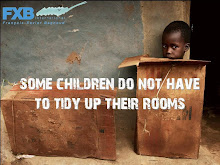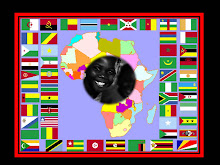Both selections are not my words and are taken directly from the sources cited within the reading.
Malaria
Malaria is only transmitted by female mosquitoes of the genus Anopheles. Most female Anopheles mosquitoes are nocturnal feeders (that is, they only bite at night).
Four Nobel Prizes have been awarded for work associated with malaria to Sir Ronald Ross (1902), Charles Louis Alphonse Laveran (1907), Julius Wagner-Jauregg (1927), and Paul Hermann Müller (1948).
The two most effective and potent anti-malarial drugs come from plants with medicinal values recognized for centuries: artemisinin from the Qinghao plant (Artemisia annual, China, 4th century) and quinine from the cinchona tree (South America, 17th century).
When combined with HIV/AIDS, malaria is even more deadly, particularly for pregnant women and children. Read more here.
Source:
http://www.nothingbutnets.net/malaria-kills/
African Trypanosomiasis (African Sleeping Sickness)
What is African trypanosomiasis (African sleeping sickness)? African trypanosomiasis, also called African sleeping sickness, is a systemic disease caused by a parasite and transmitted by the bite of the tsetse fly. There are two types of the disease, named for the areas of Africa in which they are found. West African trypanosomiasis, which causes a chronic infection lasting years, is caused by the parasite Trypanosoma brucei gambiense. East African trypanosomiasis, which causes acute illness lasting several weeks, is caused by Trypanosoma brucei rhodesiense. Worldwide, 25,000 new cases of both East and West African trypanosomiasis are reported each year; however, the World Health Organization (WHO) says it is vastly underreported.
African trypanosomiasis is confined mainly to tropical Africa between 15 degrees North and 20 degrees South latitude. The greatest risks of contracting the disease occurs in parts of Eastern and Central Africa, including:
- Uganda
- Kenya
- Tanzania
- Malawi
- Ethiopia
- Zaire
- Zimbabwe
- Botswana
West African trypanosomiasis can be contracted in parts of Western and Central Africa. Because tsetse flies inhabit rural areas only, living in woodland thickets of savanna and dense vegetation along streams, visitors to urban areas are generally not at risk.
What are the symptoms of African trypanosomiasis? The following are the most common symptoms of African trypanosomiasis. However, each individual may experience symptoms differently.
Symptoms, which occur within one to four weeks of infection, are often initially nonspecific and may include fever, skin lesions, rash, edema, or swollen lymph nodes on the back of the neck. The infection then generally progresses to meningoencephalitis. As the illness progresses, symptoms may include:
- personality change
- weight loss
- irritability
- loss of concentration
- progressive confusion
- slurred speech
- seizures
- difficulty walking and talking
- sleeping for long periods of the day
- insomnia at night
If left untreated, death will occur within several weeks to months. The symptoms of African trypanosomiasis may resemble other medical conditions or problems. Always consult your physician for a diagnosis.
source:
http://www.healthsystem.virginia.edu/UVAHealth/adult_travel/african.cfm



.jpg)





2 comments:
When i looked up that site- decrease in tourism caught my eye- bound to happen, don't you think?
We, here in India, are suddenly swarmed by mosquitoes- i cannot explain the severity. Yes, this region has always been considered endemic for malaria, but in my 23 years, i've never seen so many mosquitoes inside my parents' clean home. Keeping the windows closed all day helps- a little, insecticides help for a day, but it is not very nice. AT ALL.
It makes me wonder how people in slums deal with this.
Malaria is usually caused by a mosquito that bites only at night and a $10 net can prevent Malaria. Now, sleeping sickness, is not quite that easy to fix.
I am blessed to live in a country well north of the equator where the most common diseases found in other parts of the world are rarely seen here. I think that poverty is the underlying cause of most suffering in this world.
Again, thank you for your support. Lisa
Post a Comment